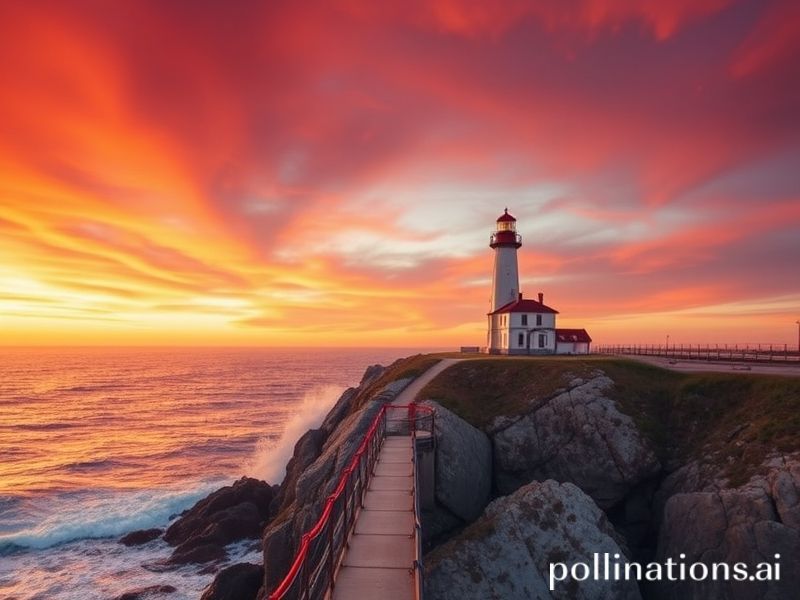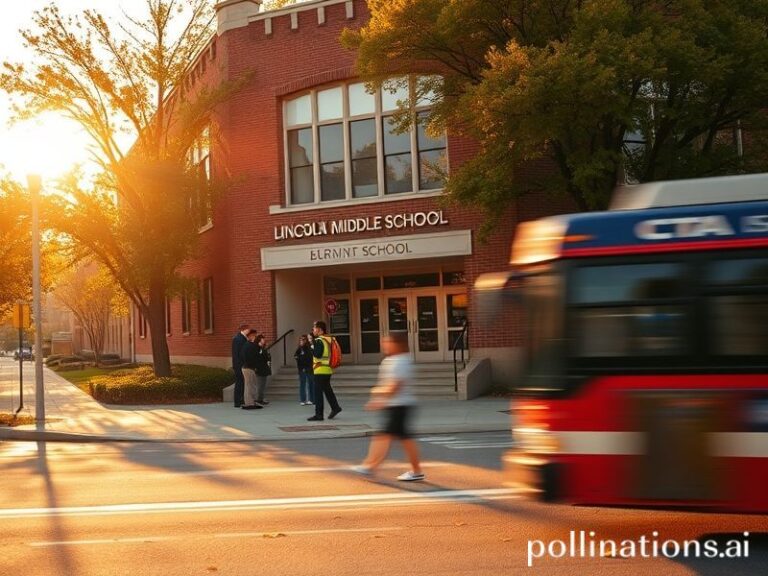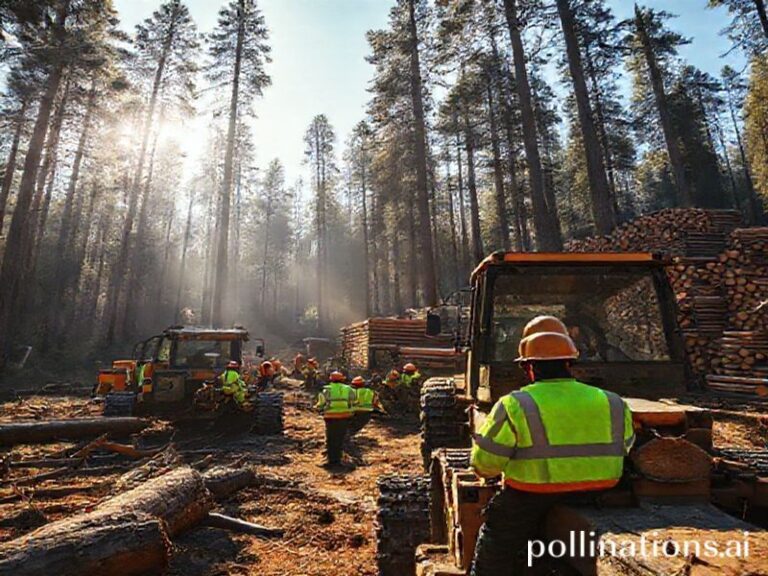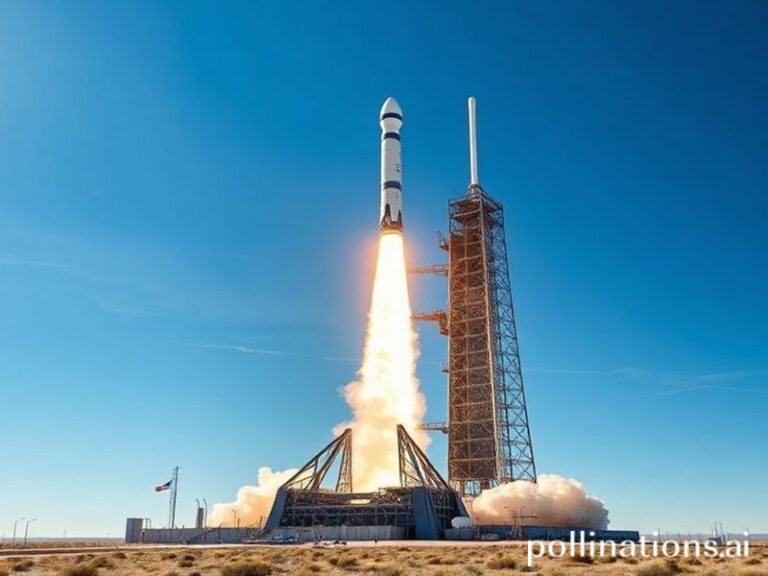Rhode Island: Tiny State, Titanic Delusions—Why the World Can’t Look Away from America’s Pocket-Sized Parody
Rhode Island: The Smallest State With the Biggest Identity Crisis
By Our Man in the Cheap Seats, somewhere between Schiphol and a delayed T.F. Green layover
Somewhere on the tectonic shuffleboard between Boston’s self-importance and New York’s delusions of centrality lies Rhode Island, a geographical typo that insists on being treated like a sovereign nation. At barely 1,214 square miles—about the size of the greater Luxembourg airport car park—the state is routinely mistaken on world maps for printer ink bleed. Yet from an international standpoint, Rhode Island is the perfect synecdoche for a planet obsessed with branding: too small to matter, too loud to ignore.
Consider the optics. While Beijing builds islands overnight and Elon Musk treats the ionosphere like a timeshare ad, Rhode Island is still arguing over whether “Plantation” should be surgically removed from its official name, lest tourists confuse it with a Confederate theme park. The referendum has been postponed twice, once for a hurricane and once because the state printer ran out of toner—an administrative shrug that would make a Belgian coalition blush.
To the wider world, Rhode Island’s greatest export is the word “quahog,” which sounds like a Scandinavian swear word but is actually an overachieving clam. These mollusks are flash-frozen and shipped to Madrid tapas bars where they are re-branded as “almejas del Norte” and priced like endangered truffles. Meanwhile, back in Narragansett Bay, locals still measure civic pride in how many stuffed clams you can fit in a Fiat. Globalization, it seems, is just a long con run by seafood marketers with LinkedIn accounts.
The state’s legislature—per capita the most heavily caffeinated in the Western Hemisphere—recently voted to spend $5 million to lure digital-nomad crypto bros whose main contribution to society is Wi-Fi congestion. In exchange, the bros promised to “pivot” an abandoned textile mill into a co-working monastery where you can mint NFTs between yoga sessions. The deal was signed at a press conference where nobody could find a working microphone; officials blamed “supply-chain issues,” the universal absolution of our late-capitalist rosary.
Internationally, Rhode Island serves as a geopolitical Rorschach test. To the EU, it’s the cautionary tale of what happens when a customs union shrinks to the size of a vineyard. To China, it’s a potential sister province—if only it could stop spelling “Narragansett” wrong on the MOU. To Russia, it’s simply another U.S. state that gets two senators, a mathematical injustice that fuels nightly talk-show rants hosted by men who wrestle bears for sport.
And yet, the place punches above its weight in the apocalypse sweepstakes. During the pandemic, Rhode Island briefly led the world in per-capita testing, mostly because you can cross the entire state during a coffee break. When the next airborne plague arrives, Rhode Island will probably close its borders with traffic cones and a sternly worded Facebook post from the governor—efficiency born of the fact that there are only so many exits on I-95.
Climate change, of course, has plans of its own. With sea levels rising faster than a Goldman Sachs bonus, cartographers predict Rhode Island will devolve into a charming archipelago of artisanal parking lots. The Dutch—experts at monetizing inundation—have already dispatched a delegation to sell floating houseboats that double as crypto-mining rigs. Locals greeted them with the traditional New England hospitality: a Dunkin’ gift card and suspicion.
So what does Rhode Island tell the rest of us, huddled in our own shrinking corners of the world? That size is irrelevant when delusion is scalable. That history can be rebranded with a sticker. And that when the last glacier melts, someone, somewhere, will still be arguing over a clam’s pronouns. In the grand tragicomedy of nations, Rhode Island is the comic relief—brief, loud, and gone before you can pronounce “quahog” correctly.
We should all be so lucky.







